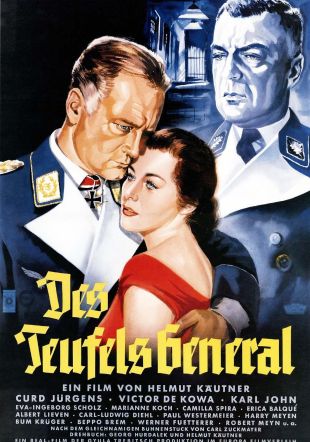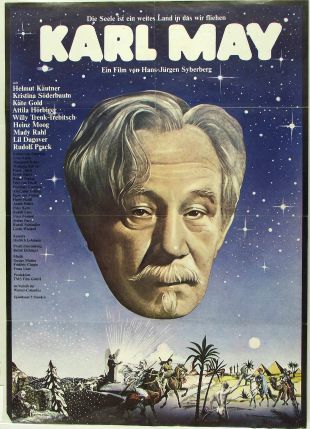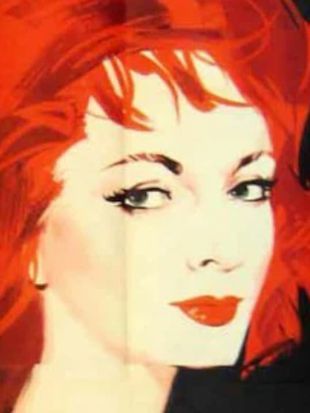A student of art history, philology, design and theater at the Munich Art School and Munich University, actor/writer/director Helmut Kaeutner (usually spelled Kautner) launched his career with the Munich Student Cabaret, also known as "Die vier Nachrichter," in 1931. The following year, Kauetner entered films as an actor in Kreuzer Emden. After four years with the Cabaret, he worked as a theatrical actor and director in Germany, Austria and Switzerland. He made his film directorial bow with the frothy musical Kitty and the World Conference (1939). His sympathetic portrayal of an English minister and his lightly satirical comments on the relationship between Italy and Germany angered Nazi minister of propaganda Josef Goebbels. As a result, Kauetner was careful to avoid any sort of political commentary in his wartime films, which had the salutary effect of keeping him out of trouble after Germany lost the war. Having previously specialized in Lubitsch-like escapist fare, Kauetner quietly switched gears after 1945, gradually accruing a reputation as a serious "prestige" director. This stylistic change would earn him international acclaim, even while his devotees bemoaned the loss of the director's light touch. In 1954, his The Last Bridge, a stark, realistic war drama, won the International Jury Prize at the Cannes Film Festival. On the strength of Last Bridge, Kaeutner was brought to Hollywood by Universal Pictures; the resulting films were The Restless Years (1958) and Stranger in My Arms (1959). He then returned to Germany, turning out such intriguing films as The Rest is Silence (a 1960 update of Hamlet) before moving into television in 1969. On occasion, Kaeutner would return to acting, most memorably as the title character in Karl May (1974). Helmut Kaeutner was married to actress/director Erica Balque.
Helmut Käutner
Share on
Biography by AllMovie
Movie Highlights
Factsheet
- Verlor den Vater noch als Kleinkind, und knüpfte als Achtzehnjähriger nach dem Tod seiner Mutter erste Kontakte zur Bühne, spielte fortan an den renommierten Münchener Kammerspielen.
- War Schauspieler und Regisseur der berühmten, 1935 von den Nazis verbotenen Kabarett-Truppe "Die vier Scharfrichter", Theater- und Operettenregisseur sowie Chanson- und Schlagerdichter, bevor er zum Film kam.
- Sein Erstlings-Kinowerk Kitty und die Weltkonferenz wurde wegen angeblich pro-britischer Haltung vom Nazi-Regime kurz vor Kriegsbeginn verboten.
- Handelte mit Universal in Hollywood im Sommer 1956 einen 7-Jahresvertrag für einen Film pro Jahr zu optimalen Bedingungen aus.
- Gründete 1957 zusammen mit Wolfgang Staudte und Harald Braun die "Freie Film Produktion GmbH", die eng mit "Real-Film" und "Europa-Filmverleih" zusammenarbeitete.
- Erhielt neben zahlreichen Auszeichnungen 1973 das Große Bundesverdienstkreuz, den Berliner Kunstpreis und den Adolf-Grimme-Preis in Gold.
- War Mitglied der Akademie der Künste Berlin/West, des PEN-Zentrums der BRD und Mitbegründer der Freunde der Deutschen Kinemathek Berlin e.V..


